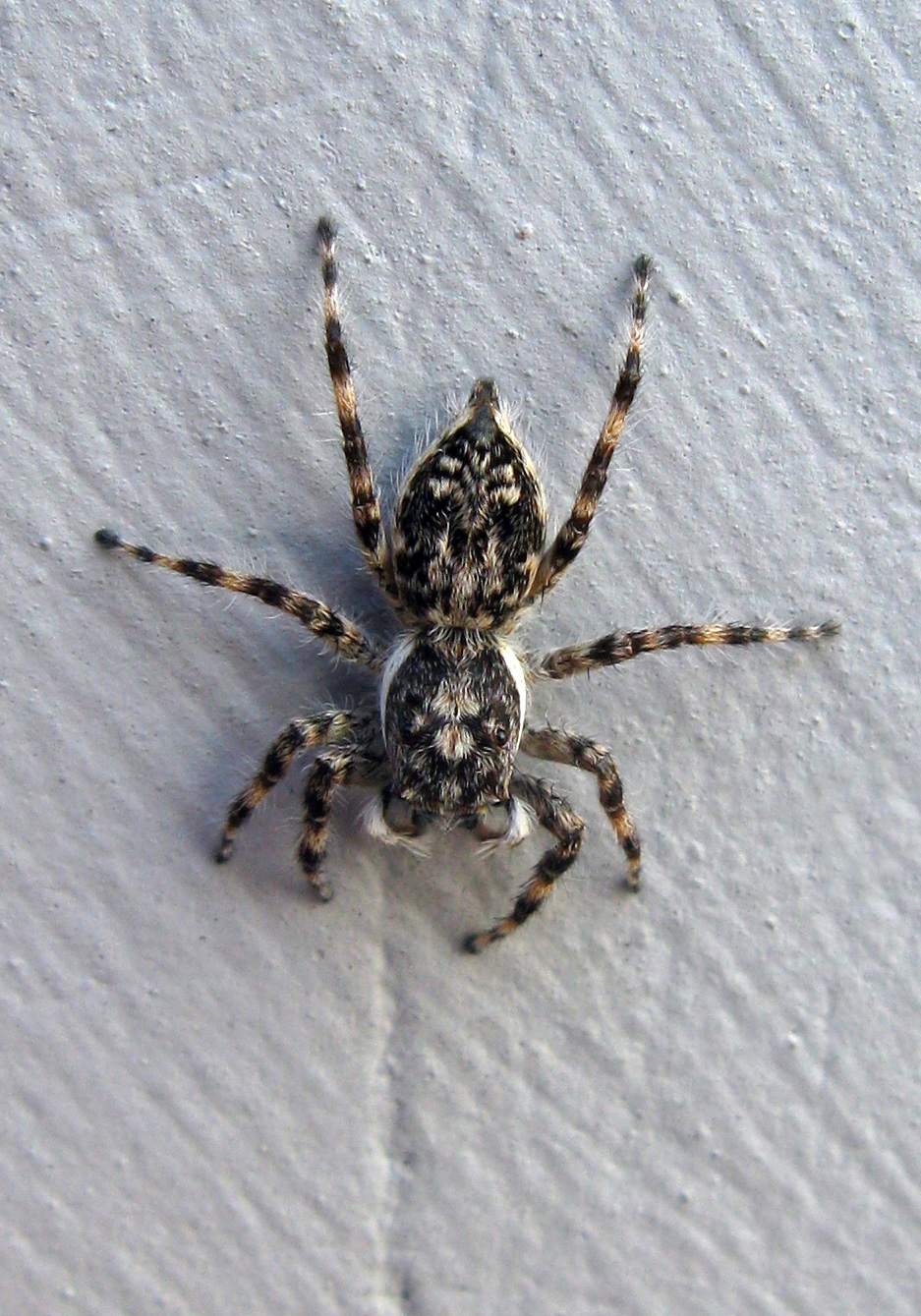Menemerus nigli is a species within the genus Menemerus, part of the family Salticidae, commonly known as jumping spiders. Menemerus nigli species are part of the jumping spider family, known for their excellent vision, agility, and distinctive hunting behaviors. They are characterized by their compact body shape and the ability to leap several times their body length, traits that aid in their hunting strategy.
Wall Jumping Spiders
Menemerus nigli
Home » Encyclopedia » Animals » Spiders » Wall Jumping Spiders
Classification
KINGDOM
:
Animalia
PHYLUM
:
Arthropoda
CLASS
:
Arachnida
ORDER
:
Araneae
FAMILY
:
Salticidae
GENUS
:
Menemerus
SPECIES
:
Menemerus nigli
Other Information
Venomous?
Like all jumping spiders, Menemerus nigli species are venomous, utilizing their venom to immobilize prey. However, the venom of jumping spiders is generally not harmful to humans, usually causing no more than minor symptoms such as localized pain or swelling if a bite occurs.
A Danger to Humans?
Menemerus nigli species pose minimal danger to humans. These spiders are not aggressive towards humans and tend to bite only if provoked or if they feel threatened. Bites are rare and not considered medically significant.
Population Status
Specific data on the population size of Menemerus species, including the hypothesized Menemerus nigli, is not widely available. Jumping spiders, in general, tend to have healthy populations in suitable habitats, suggesting potentially stable populations where environmental conditions are favorable.

Wall Jumping Spiders (Menemerus nigli), Photo by David Lowenthal
Life Span:
The lifespan of jumping spiders can vary but generally spans about 1-2 years, encompassing several stages from egg to adult.
Weight and Length:
Jumping spiders are generally small, with many species reaching body lengths of about 3 to 15 mm. Specific weight data is rarely noted due to their small size.
Distribution:
Menemerus nigli has been found in India, Pakistan and Thailand. The spider was first identified in western Pakistan by Wanda Wesołowska and Mario Freudenschuss. This was the second example of the genus to be identified in the country. A specimen in West Bengal, India, was confirmed as being from the same species by comparing the DNA barcode in 2017. It was the fifth species of the genus found in the country. The spider was also identified in Thailand in 2020.

Wall Jumping Spiders (Menemerus nigli), Photo by David Lowenthal
Habits and Lifestyle:
Menemerus species are diurnal, actively hunting during the day. They do not spin webs to catch prey but rather use their jumping ability to ambush or chase down insects. They may use silk for safety lines when jumping and for creating shelters or egg sacs.
Diet and Nutrition:
Their diet consists primarily of small insects. They rely on their vision to spot prey and their agility to capture it, often leaping several times their body length to do so.
Mating Habits:
Mating behavior in jumping spiders involves complex visual displays, where males perform dances and exhibit their colorful patterns to attract females. The success of these courtship rituals is crucial for mating.
